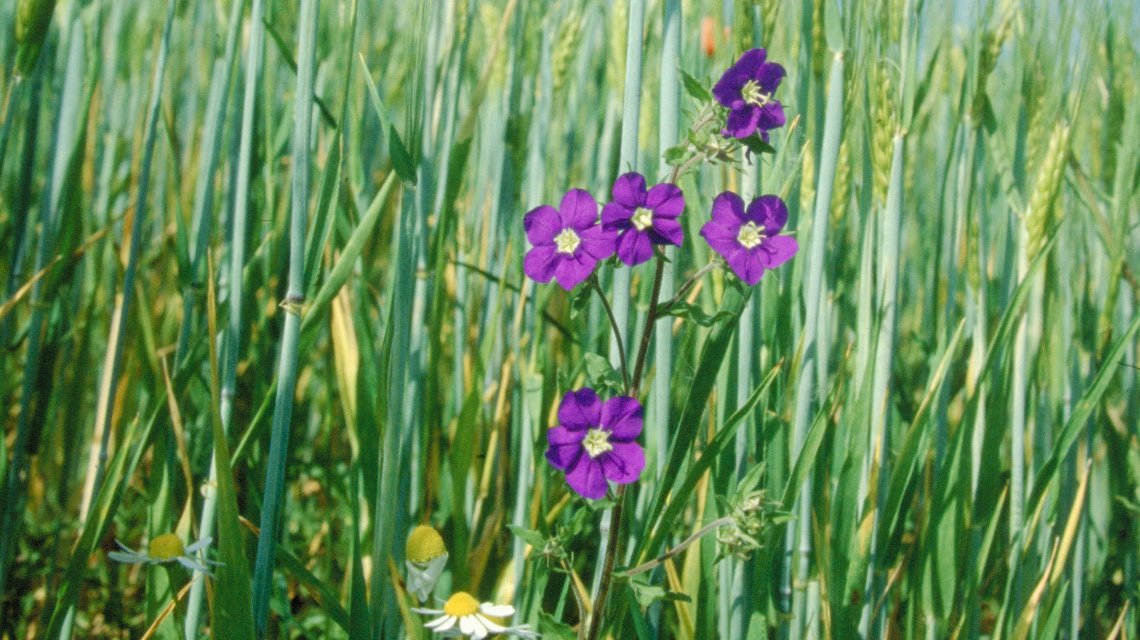Clear advantage for organic farming
A recent study by the Thünen Institute shows: Organic agriculture scores significantly better than conventional agriculture in terms of resource conservation, soil fertility and biodiversity.

Organic agriculture stands for sustainable agriculture, species diversity and above all the consistent elimination of synthetic chemical pesticides. With a share of 7.5% of the total agricultural area, organic farming is still marginal in Germany. However, current data from the Federal Office for Agriculture and Food (BLE) show a clear trend towards the sustainable cultivation of fields and meadows.
But how advantageous is organic farming really? Only recently, Göttingen agricultural ecologists have proven that environmentally friendly and sustainable forms of agriculture can also be profitable for farmers. Now researchers at the Thünen Institute have taken a broad look at the potential of organic farming. The focus was on water conservation, soil fertility, biological diversity, climate protection and adaptation, resource efficiency and animal welfare.
Hundreds of studies evaluated
The aim of the study was to assess the impacts of organic farming on society in these areas on the basis of existing publications. A total of 528 studies with 2,816 reference pairs from 1990 to March 2018 were selected and analyzed. The result is a 361-page study that shows in which areas organic farming scores or does not score compared to conventional agriculture.
After evaluating the numerous publications, the Thünen researchers came to the conclusion that organic farming is significantly better than conventional farming, especially in terms of environmental protection and resource conservation. This includes, in particular, better quality of groundwater and surface water. Here, the absence of pesticides and other chemical pesticides has a particularly positive effect. Nitrogen inputs in organic farming were also 28% lower than in conventional farming.
More soil fertility and species diversity
Further advantages can also be seen in soil fertility: there were a particularly large number of earthworm populations and less acidification of the topsoil. In contrast, the study found that there was no clear trend in the amount of plant-available phosphorus in the topsoil towards one or the other form of cultivation.
There were also positive effects of organic farming on biodiversity: with 95% more plant species, the arable flora was much more pronounced. The number of species of field birds was also 35% higher on average and that of insects 23% higher. The economical consumption of resources in organic farming is reflected, for example, in nitrogen and energy efficiency. Organic farming proved to be more advantageous in both areas. Positive effects on erosion prevention and flood protection were also observed.
Hardly any differences in animal welfare and climate protection
However, a comparison of organic and conventional agriculture in animal welfare and climate protection did not reveal any clear differences. There are various reasons for this: On the one hand, there were few studies that addressed animal welfare. On the other hand, the researchers found that organic farming causes lower greenhouse gas emissions per hectare. However, they suspect that the yield-related climate protection performance of organic farming is comparable to that of conventional agriculture due to the lower yield.
The study "Thünen Report 65" was funded by the Federal Ministry of Food and Agriculture as part of the Federal Programme for Organic Agriculture and Other Forms of Sustainable Agriculture (BÖLN).


